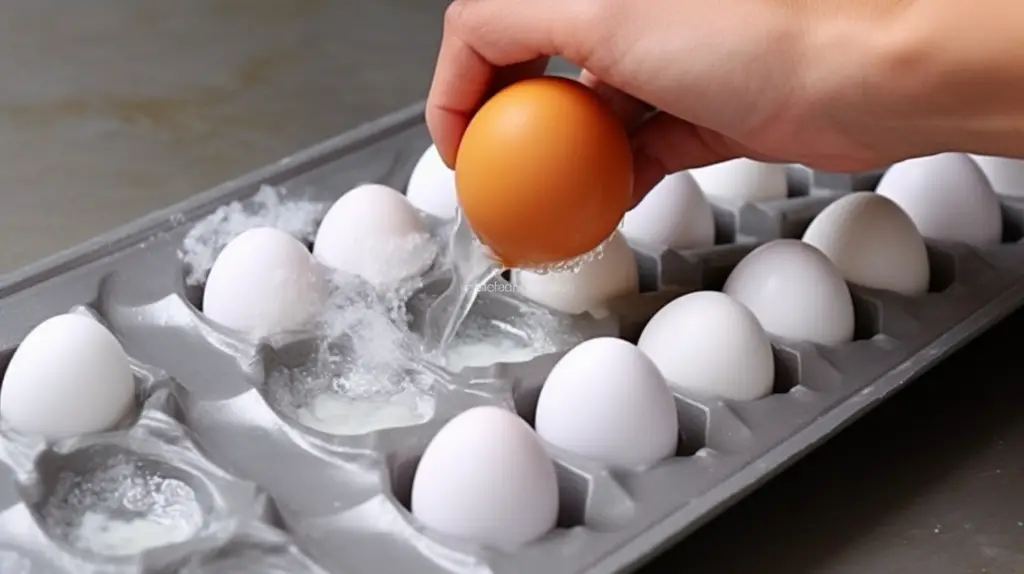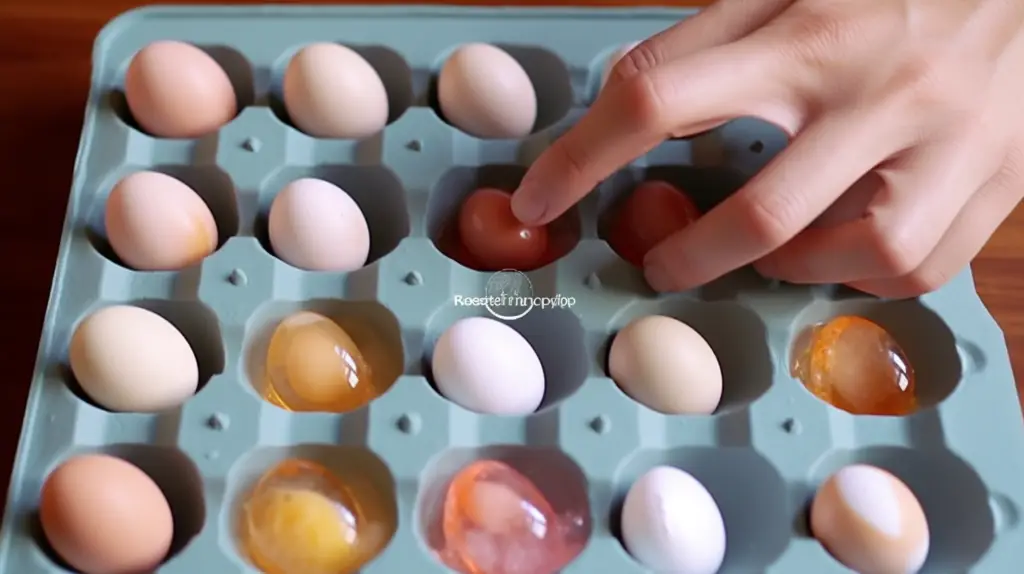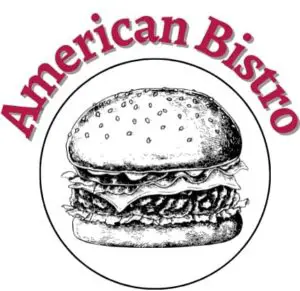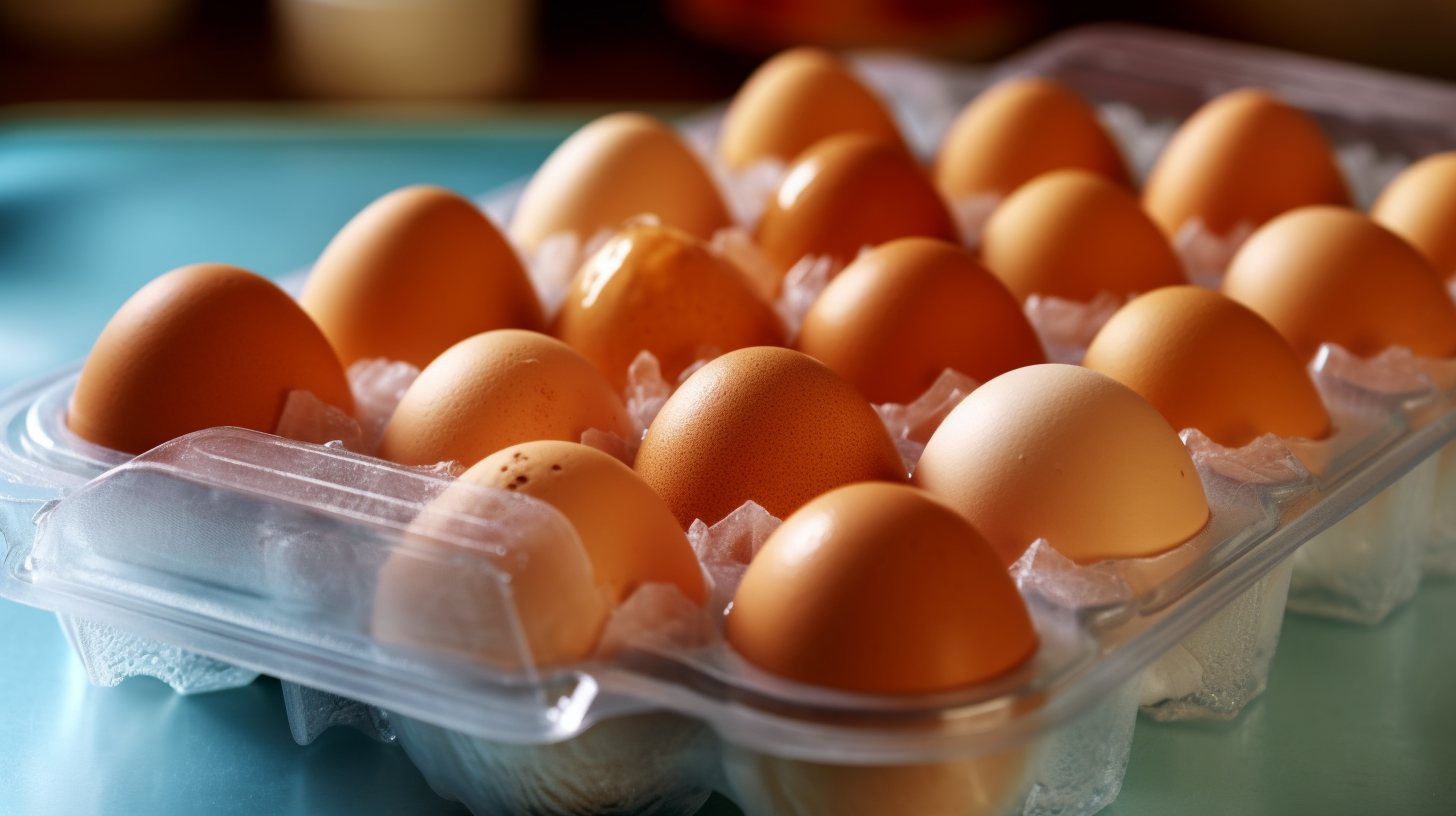Eggs are a staple ingredient in many households, but sometimes we end up with more eggs than we can use before they expire. Freezing eggs is a practical solution to avoid waste and ensure that we always have eggs on hand.
While there are different methods to freeze eggs, using ice cube trays is a popular and convenient way to portion and store them for future use. To freeze eggs in ice cube trays, you need to follow specific steps to ensure that the quality of the eggs is preserved and that they remain safe for consumption.
This article will guide you through the process of preparing your eggs, selecting the right ice cube trays, cracking and separating your eggs, freezing them properly, storing them correctly, thawing them safely, and providing tips and tricks for successful egg freezing.
Whether you want to save money by buying eggs in bulk or have leftover egg yolks or whites from baking recipes, learning how to freeze eggs in ice cube trays can be an excellent solution for your kitchen needs.
Key Takeaways
- Whisk eggs together prior to freezing and consider blanching or adding preservatives.
- Use silicone trays with smaller compartments or stainless steel/aluminum trays with lids to prevent freezer burn.
- Portion out egg whites and yolks according to recipe requirements and store in airtight, moisture-proof containers.
- Thaw frozen eggs in the refrigerator overnight or in cold water for 30 minutes and adjust recipes as needed.
Preparing Your Eggs for Freezing

Prior to freezing, it is recommended to crack each egg into a bowl and whisk them together until the yolks and whites are fully combined. This ensures that the eggs will freeze evenly without any separation or clumping.
Once the eggs are mixed, they can be prepared for freezing in one of two ways: blanching or adding preservatives.
Blanching involves briefly cooking the eggs before freezing them. To do this, bring a pot of water to boil and carefully lower the mixed eggs into the water with a slotted spoon. Let them cook for about 30 seconds before removing them from the water and immediately placing them into an ice bath to stop the cooking process. Blanching helps prevent freezer burn and extends the shelf life of frozen eggs.
Alternatively, you can add preservatives such as salt or sugar to your mixed eggs before freezing. The addition of salt or sugar helps preserve their texture and flavor while also preventing bacteria growth during storage. For every cup of mixed eggs, add 1/2 teaspoon of either salt or sugar before pouring into ice cube trays.
Selecting the right ice cube trays is important when freezing eggs. It is best to use silicone trays as they are non-stick and make it easy for frozen cubes to pop out without breaking apart. Additionally, choose trays with smaller compartments so that each cube contains only one or two tablespoons of egg mixture – this makes it easier to thaw only what you need without wasting any excess portions.
With these preparations complete, you’ll have perfectly frozen egg cubes ready for your convenience whenever needed!
Selecting the Right Ice Cube Trays

When it comes to preserving your egg mixture, the choice of receptacle is crucial in ensuring that the process is convenient and effective. Ice cube trays are a popular option due to their small size and ease of storage. However, not all ice cube trays are created equal when it comes to freezing eggs. It is important to select the right type of ice cube tray for optimal results.
Firstly, it is important to avoid using silicone or plastic ice cube trays as they may release harmful chemicals into your egg mixture during freezing. Instead, opt for stainless steel or aluminum trays which are safer and more durable. These materials also freeze quickly, minimizing ice crystal formation that can damage the quality of your eggs.
Secondly, consider the shape and size of the individual cubes in the tray. Smaller cubes freeze faster than larger ones and require less time to thaw when you need them. Additionally, choose a tray with a lid or cover to prevent freezer burn from affecting your eggs over time.
Keep in mind that not all ice cube trays will fit comfortably in your freezer. Measure the space before purchasing an ice cube tray to ensure that it will fit properly without taking up too much room.
Now that you have selected the appropriate ice cube tray for freezing your eggs, it’s time to move on to cracking and separating them before placing them into their designated slots in the tray.
Cracking and Separating Your Eggs
To ensure optimal separation of yolks and whites, gently crack each egg into a small bowl before transferring it to the larger mixing bowl. This is similar to how a surgeon carefully places each instrument on the tray before beginning an operation. By doing so, you can eliminate any risk of getting pieces of shell or yolk mixed in with your egg whites.
After cracking each egg individually, use a whisking technique to separate the yolks from the whites. For those who plan on using their frozen eggs for baking purposes, it’s important to keep your yolks intact as much as possible. To do this, slowly move your whisk back and forth through the whites until they are broken up but not whipped into peaks. Then, use a spoon or fork to scoop out each yolk one at a time and transfer them to another bowl.
If you’re worried about preserving your yolks for long periods of time without any spoilage or discoloration, add 1/8 teaspoon of salt (or sugar) per 4 yolks before freezing them in ice cube trays. This will help maintain their texture and color during storage.
Once you’ve separated all your eggs and added salt (if desired), pour them into ice cube trays and place them in the freezer until frozen solid.
Now that you’ve successfully cracked and separated your eggs while preserving their quality, it’s time to move onto freezing them in ice cube trays without sacrificing flavor or nutrition.
Freezing Your Eggs in Ice Cube Trays
One effective method of preserving the freshness and quality of your separated yolks and whites is by utilizing a common kitchen tool designed for freezing liquids into small portions – ice cube trays.
Freezing eggs in ice cube trays allows you to store them for an extended period without sacrificing their taste, texture, or nutritional value. The process of freezing eggs in ice cube trays is relatively simple and straightforward.
There are several advantages to using ice cube trays for freezing your eggs. First, it allows you to portion out your egg whites and yolks according to your recipe’s requirements, so there’s no waste or guesswork involved. Second, storing frozen eggs in smaller portions makes defrosting more manageable since they thaw quickly and evenly. Thirdly, the cost of buying multiple containers can be avoided with this method. However, one drawback is that the edges may freeze faster than the center depending on how full each compartment is.
While using ice cube trays is a popular way of freezing eggs, there are alternative methods available as well. Some people prefer to use freezer bags or plastic containers instead of ice cube trays because these options take up less space in the freezer and don’t require as many dishes when preparing meals later on. Additionally, vacuum-sealed bags can help preserve the flavor better than other storage methods but come at a higher price point.
Freezing your eggs in ice cube trays provides numerous benefits while allowing you to store them easily until needed. However, other alternatives exist if you find that they aren’t suitable for your needs or preferences.
In the next section about ‘storing your frozen eggs,’ we will discuss some essential tips on how best to keep them fresh once they’re frozen solid without losing any quality over time.
Storing Your Frozen Eggs
Proper storage of frozen eggs is crucial to maintain their quality and freshness for future use, ensuring that they remain a valuable ingredient in your kitchen.
To store your frozen eggs properly, you need to transfer them from the ice cube trays into a proper container. It is recommended to use an airtight container or freezer bag that will keep the eggs safe from freezer burn and prevent any odors from seeping in. This will also ensure that the eggs do not absorb any flavors or aromas.
When stored correctly, frozen eggs can last up to six months. However, it is important to note that the shelf life may vary depending on the storage conditions and how well they were handled before freezing. For example, if you freeze your eggs past their expiration date or if they were cracked before freezing, their shelf life may be shorter.
To thaw and use your frozen eggs, you can simply transfer them from the freezer to the refrigerator overnight. Alternatively, you can place them under cool running water until they are completely thawed. It is important not to thaw your frozen eggs at room temperature as this can encourage bacterial growth and spoilage.
Proper container selection and careful handling during storage are essential for maintaining optimal freshness of your frozen eggs. Keeping these tips in mind when storing your frozen food items will help ensure that they remain fresh for longer periods of time while still retaining their flavor profile and nutritional value when used later on in cooking or baking recipes.
Thawing and Using Your Frozen Eggs
Thawing and using frozen eggs requires careful consideration of their storage conditions and handling before freezing. It is important to thaw them properly to ensure their quality, safety, and taste. Quick thawing methods can be used for immediate use, but it is recommended to use the refrigerator method for a gradual defrosting process that avoids bacterial growth.
To quick thaw your frozen eggs, place them in a bowl of lukewarm water for about 10-15 minutes until they are soft enough to break apart. You can also microwave them at 30-second intervals on low power until they are fully thawed.
Once your frozen eggs are fully thawed, you can use them in various recipes. They are perfect for baking cakes, muffins or breads as they add moisture and act as binders. You can also make scrambled eggs or omelets by whisking the thawed eggs with some milk or cream and cooking it on low heat until firm. Frozen egg yolks can be used in custards or ice creams while egg whites can be added into smoothies or whipped up into meringues.
In addition to these recipe ideas, there are some tips and tricks for freezing eggs successfully that should also be considered when storing your frozen eggs. These include adding salt or sugar to prevent the egg from becoming grainy after being frozen, labeling the container with the date of freezing so you know how long it has been stored, and cracking each egg separately before freezing instead of freezing them whole in a tray which could cause freezer burn due to prolonged exposure to air.
By following these guidelines, you will have perfectly preserved eggs ready for use whenever you need them.
Knowing how to properly thaw and use your frozen eggs is essential in ensuring their quality remains intact even after being stored for an extended period of time. With quick-thawing methods available for immediate use and numerous recipe ideas such as baking cakes or making scrambled eggs, there are endless possibilities for using your thawed eggs. By following these tips and tricks for successful freezing, you can enjoy the convenience of having eggs on hand whenever you need them.
Tips and Tricks for Freezing Eggs Successfully
To ensure the long-term quality and preservation of your stored eggs, it is recommended to label each container with the date of freezing and crack each egg separately before storing. This helps in keeping track of the age of frozen eggs, ensuring that they are used within a reasonable time frame.
Furthermore, cracking each egg separately allows for easy portioning when using them in cooking or baking.
When it comes to choosing the best containers for freezing eggs, it is important to consider those that are airtight and moisture-proof. Mason jars or plastic containers with tight-fitting lids work well for this purpose. It is also essential to avoid freezer burn by removing as much air as possible from the container before sealing it.
Using frozen eggs in recipes requires some adjustments depending on what you intend to make. For instance, if you want to use frozen egg whites for meringue or whipped cream, ensure that they are completely thawed and at room temperature before beating them. Additionally, if you plan on using whole frozen eggs for scrambled eggs or omelets, allow them time to fully thaw in the refrigerator overnight.
Successfully freezing eggs requires proper labeling and individual cracking of each egg before storage. Using appropriate airtight containers can help prevent freezer burn while allowing for easy portioning when using them later on. Finally, taking into account how different types of frozen eggs behave during cooking can help ensure successful recipe outcomes when incorporating them into dishes such as baked goods or breakfast items like scrambled eggs.
Frequently Asked Questions
How long can frozen eggs be stored?
The storage duration of frozen eggs largely depends on the freezer temperature and conditions. In ideal freezer temperatures, which are between -15°C to -18°C, eggs can be stored for up to a year without any significant deterioration in quality.
However, it is important to note that the longer eggs are stored, the more their quality declines. Therefore, it is recommended to use frozen eggs within six months of freezing them.
It is also important to properly label and date the frozen eggs before storing them in order to keep track of their age and ensure they do not exceed their optimal storage duration.
Can you freeze raw eggs without cracking them first?
Freezing raw eggs without cracking them first is possible, but it requires some preparation. Eggs can be frozen whole, but they must be removed from their shells and placed in an airtight container or freezer bag to prevent freezer burn. Freezing raw eggs in their shells will cause the shell to crack due to expansion during freezing.
It is important to note that the texture of the egg may change once it has been frozen, particularly for baked goods and dishes where the consistency of the egg is crucial. Additionally, frozen eggs should be thawed in the refrigerator before use to avoid any potential bacterial growth.
While freezing raw eggs without cracking them first is possible, it may not be ideal for all cooking purposes.
Can you freeze egg whites and yolks separately?
Freezing eggs can be a convenient way to preserve them for future use. When considering freezing egg whites and yolks separately, it is important to weigh the benefits and drawbacks.
On one hand, separating the yolks from the whites can make them easier to portion out when cooking or baking. However, both components may freeze differently and may not maintain their texture once thawed. Additionally, frozen eggs may lose some of their nutritional value over time.
To ensure successful freezing of eggs, it is recommended to use fresh eggs and follow tips and tricks such as adding salt or sugar to prevent crystallization during freezing.
Overall, while there are benefits to separately freezing egg whites and yolks, it is important to consider potential drawbacks before proceeding with this method.
Can you use frozen eggs for baking and cooking?
Using frozen eggs as a substitute for fresh eggs in cooking and baking is possible, although it may affect the texture and overall quality of the end product. When it comes to dishes like omelettes and scrambled eggs, using frozen eggs may result in a slightly watery consistency due to the freezing process.
However, for baked goods such as cakes or cookies, frozen egg substitutes can be used without significant changes in taste or texture. It’s important to note that the thawing process should be done slowly in the refrigerator rather than at room temperature to avoid bacterial growth.
Additionally, while using ice cube trays to freeze individual portions of eggs can be convenient for meal prep, it is not necessary for successfully using frozen eggs in cooking and baking.
How do you prevent freezer burn on frozen eggs?
Freezer burn is a common problem that can occur when food is not properly stored in the freezer. This occurs due to moisture loss and oxidation, which results in discoloration, texture changes, and unpleasant flavors.
To prevent freezer burn on frozen eggs, it is important to use proper storage techniques. The first step is to ensure that the eggs are sealed tightly in an airtight container or freezer bag to prevent air from coming into contact with them.
Additionally, it is recommended to label the container with the date of freezing so that you can keep track of how long they have been stored in the freezer. Finally, it’s best to store frozen eggs at a consistent temperature of 0°F or below to maintain their quality and freshness.
By following these tips for preventing freezer burn and using proper storage techniques for frozen eggs, you can ensure that your ingredients remain fresh and tasty for all your baking and cooking needs.
Conclusion
Freezing eggs in ice cube trays is a convenient way to preserve your eggs for future use. By following the proper steps, you can ensure that your frozen eggs will maintain their quality and freshness.
However, it is important to select the right ice cube trays and crack and separate your eggs carefully before freezing them.
Just like how a chef carefully selects and prepares ingredients for a dish, you too can take the necessary steps to prepare your eggs for freezing. Think of it as creating a foundation for a delicious meal – by taking care in the preparation process, you are setting yourself up for success in the end result.
With these tips and tricks in mind, go forth and freeze your eggs with confidence!

